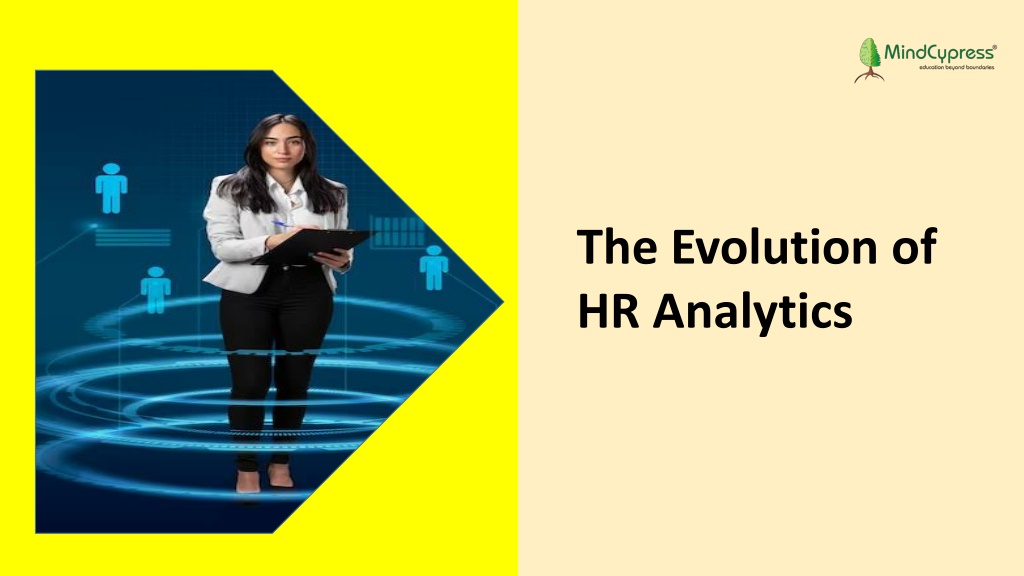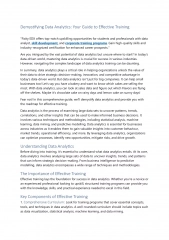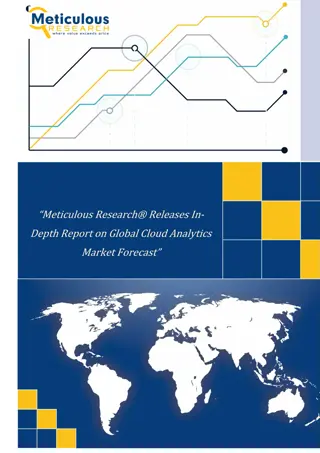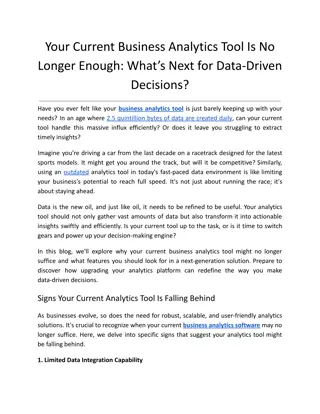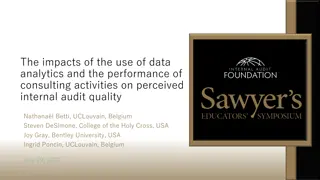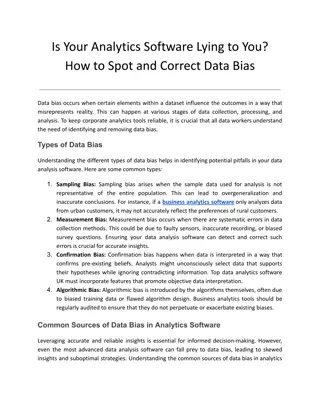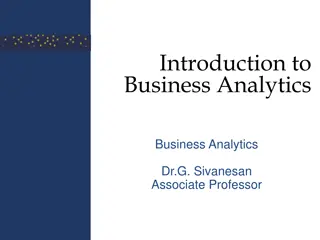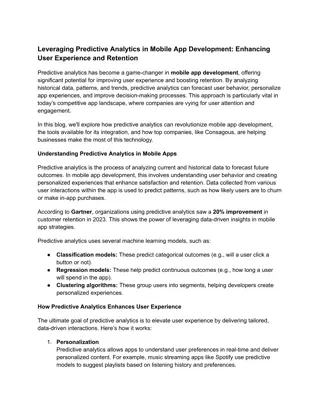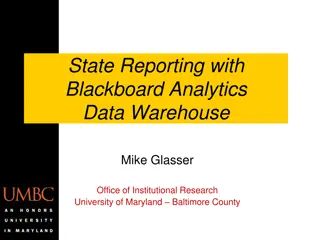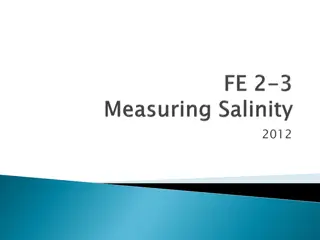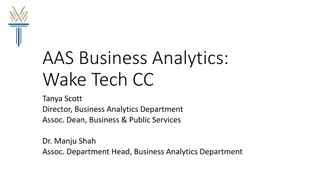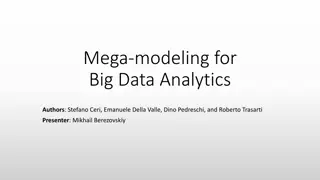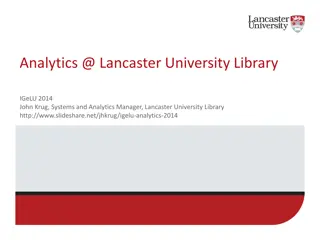The Evolution of HR Analytics
Human Resources is one of the industries that undergoes evolution at a rapid pace. It started in the 20th century with academics growing keen about factors that impact employee performance and behavior.n
Uploaded on Aug 12, 2024 | 2 Views
Download Presentation

Please find below an Image/Link to download the presentation.
The content on the website is provided AS IS for your information and personal use only. It may not be sold, licensed, or shared on other websites without obtaining consent from the author. Download presentation by click this link. If you encounter any issues during the download, it is possible that the publisher has removed the file from their server.
E N D
Presentation Transcript
The Evolution of HR Analytics
Introduction: Human Resources is one of the industries that undergoes evolution at a rapid pace. It started in the 20th century with academics growing keen about factors that impact employee performance and behavior. Since then, it has significantly evolved over the years, with HR Analytics being the prominent change. HR Analytics helps professionals make enhanced data- driven decisions, making the process more strategic and profoundly impacting the organization. In this blog, we will explore HR analytics, its evolution and how HR analytics certification, training and courses can help your career.
The Early Days of HR Back in the day, HR roles only consisted of responsibilities like hiring, attendance, salary and compliance. Yes, these are essential roles but there was still a whole lot of scope that the HR industry had to explore. For example, the decision-making was vastly based on intuition and anecdotal evidence. It did not bring accurate and consistent solutions and was overall inefficient. Learning from the past, the HR Analytics Training Online prepares the next generation to make data-driven decisions for better outcomes.
The Shift Towards Data-Driven HR A big change in HR was sparked by the development of technology and the increasing use of data in company decision-making. Large volumes of employee data could now be gathered and stored by enterprises thanks to the emergence of HR information systems (HRIS). But it was the ability to examine this data that really changed the game. HR analytics, sometimes referred to as people analytics or talent analytics, is the methodical gathering, evaluation, and interpretation of HR data with the goal of enhancing decision- making. Organizations now manage their personnel in completely new ways, from performance management and employee engagement to recruiting and retention, thanks to the shift to data-driven HR.
The Growth of HR Analytics Training and Certification As HR analytics' significance became more apparent, so did the need for qualified experts in this area. Specialized HR analytics training courses and certifications were created as a result. A wide range of human resource analytics courses are now available to HR professionals, giving them the tools they need to fully utilize data. HR Analytics Certification: The achievement of an HR analytics certification is indicative of an individual's expertise in leveraging data to inform HR tactics. Certified specialists are valued assets to their companies because of their reputation for converting difficult data into insights that can be put to use. HR Analytics Training: A wide range of subjects are covered in in-depth HR analytics training programs, such as statistical analysis, data visualization, data gathering techniques, and predictive analytics. To offer real-world experience, these programs frequently include practical projects and case studies from the actual world.
The Impact of HR Analytics There are several advantages of incorporating HR analytics into organizational procedures: Enhanced Attraction and Retention: HR specialists may create plans to draw in and keep top personnel by examining data on employee performance, attrition rates, and hiring sources. Increased Workplace Engagement: By identifying the variables that affect employee engagement and satisfaction, HR analytics enables businesses to launch focused interventions. Enhanced Management of Performance: Development plans and performance reviews based on data ensure that staff members have the resources they need to succeed in their positions. Knowledge-Based Workforce Planning: With the use of predictive analytics, businesses can plan ahead and anticipate their workforce requirements, ensuring they have the right people on hand to meet their objectives.
The Future of HR Analytics HR analytics have a bright future ahead of it because of ongoing developments in data science and technology. It is anticipated that machine learning and artificial intelligence (AI) would be crucial in automating data processing and delivering even more insightful results. HR practitioners need to embrace these developments and keep up with the latest techniques in order to remain competitive. To progress in this fast-paced industry, candidates must enroll in a human resource analytics course and earn the necessary certifications.
Conclusion HR's position as a transactional department has evolved into a strategic partner in the success of businesses thanks to the development of HR analytics. Through the Human Resource Analytics course, professionals can gain the knowledge and skills necessary to use data to enhance corporate performance and decision-making. The significance of HR analytics will only increase with the advancement of technology, making it a crucial competency for HR professionals in the future. With the appropriate HR analytics training and certification, you can embrace the power of data and advance your HR career.
Slide End & Resource Resource: https://www.mindcypress.com/blogs/human- resource-management/the-evolution-of-hr-analytics Email: support@mindcypress.com Phone: +1-206-922-2417 +971 50 142 7401
